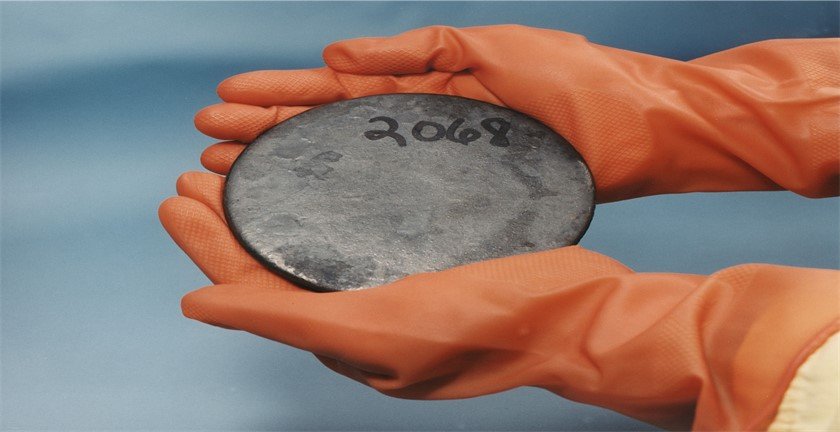Uranium is a heavy metal used as a source of energy. It contains radioactive isotopes which are used to generate electrical power and develop weapons. The component can be used in inertial guidance devices and x-ray equipment in medical department.
Pros:
1. Nuclear power generation: Uranium is the main source of nuclear power production. Nuclear power makes around 5.7% of the world’s total energy.
2. Clean source of energy: Uranium results in a clean, safer and efficient nuclear power plant. It produces clean energy and no greenhouse gases are emitted.
3. Less expensive: Uranium is less expensive to purchase and transport and this lowers total cost of energy production. The cost of operating the nuclear power plant is also very low although the prices are influenced by demand and supply of the commodity.
4. Durable metal: Uranium is used in the military to build armored vehicles, tanks, and other detachable vehicle ornaments because of its durable and thickness nature.
5. Small quantity: A small amount of metal is needed to create a substantial amount of energy. This contributes to the overall low cost of production. Less material for energy production means less mining.
6. Easily accessible: Uranium occurs in seawater and can easily be recovered from the oceans. It is also common in the earth’s crust or in rocks. Due to its small quantity use, uranium found in the ocean and earth’s crust can last billion years.
7. Wide use: Radioisotopes components are used for treating cancer and to sterilize medical equipment.
Due to its high-density nature, it is used in building the keels of yachts. It is also used as a counterweight for surface control of the aircraft and radiation shielding.
8. Job creation: Expansion or uranium mining leads to the creation of job opportunities to millions of people. Skilled personnel will be able to get jobs in the nuclear power stations.
9. Economic impact: Uranium mining industry generates a lot of income to the country. In Canada, it contributes over 12% of the province’s gross domestic product.
10. Reliable: Uranium extraction is a reliable process and the processes are less likely to fail.
Cons:
1. Health risk: Uranium is radioactive and it can cause deleterious health issues which lead to death. Accidents can also occur during the energy production process.
2. Radiation: If radioactive waste is not properly disposed of at a safe place, it will leak radiation into the environment. The radiation emissions can last for years. This increases the risk to diseases like cancer among others.
3. Time-consuming: Building a nuclear plant may take years before completion. The cost of building a nuclear plant can be very high.
4. Deforestation: Uranium leads to clearing of the land next to the mining area. The original topsoil may end up being removed affecting deforestation in the area.
5. Extraction of raw material: Care should be taken during the mining, transportation, and storage of uranium to prevent radiation.
6. Water pollutant: The nuclear chambers are cooled off by water. When using boiling water reactors (BWRs), water passes through the reactor core and if there is fuel leakage, the water gets contaminated. In Pressurized water reactors (PWRs), cold water enters through the primary pipe and the heated water is then removed via the secondary pipe. In this process, the coolant doesn’t come into contact with the reactor.
7. Leakage: If the nuclear reactor systems are not well maintained, they may cause some leakage of harmful radiation in the environment.
8. Contamination: Shutdown nuclear reactor systems may be contaminated and this may affect the surrounding environment.



